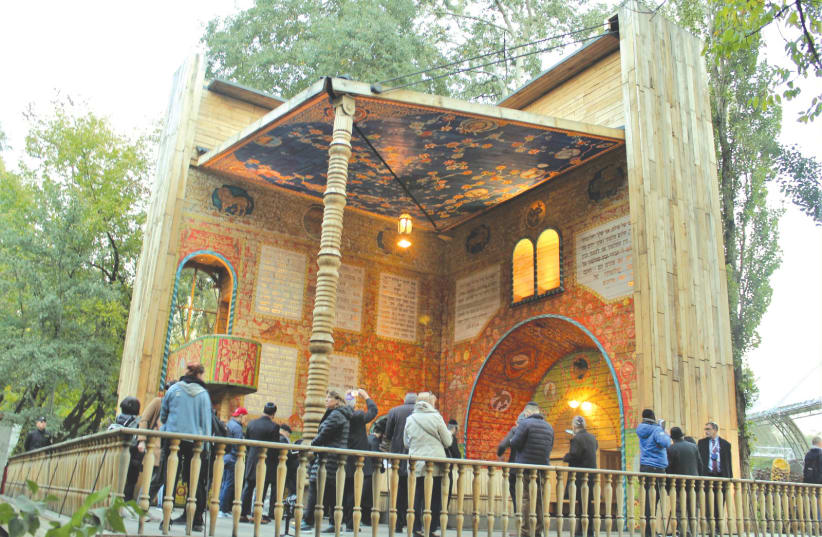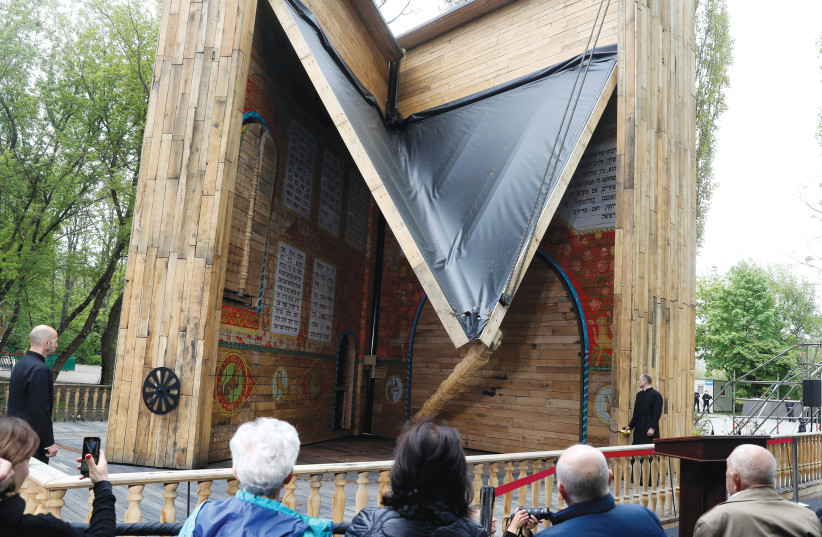On September 29-30, 1941 in Babyn Yar, a ravine northwest of Kyiv, some 33,000 Jews were murdered by automatic weapons fired by the German Einsatzgruppen, with the aid of Ukrainian collaborator policemen. It was a slaughter in the course of two days that Jews had never before experienced in such numbers and brutality.
Stripped of their clothes, their valuables, and their dignity, the Jews were shot, lined in a row, by the killers. The corpses fell into the ravine, only to be covered by the next row of the dead.
According to one eyewitness account, “The policemen took the children by the legs and threw them alive into the Yar.” Later, as the Germans were sure to lose the war, they tried to cover up their heinous crimes, by having Jewish commandos burn the corpses. Babyn Yar eventually became central to oppressed Soviet Jews to gather and remember the Jewish dead, whose ethnicity was denied by the Soviets.
We move from recent history to ancient history. Judah’s King Zedekiah ignored the warnings of the great prophet Jeremiah and rebelled against the Babylonian superpower in 586 BCE. The result was a disaster: Jerusalem was razed and the Temple of Solomon was destroyed. The suffering of the besieged Jews is chronicled in the Book of Lamentations, ascribed to Jeremiah. It is a story of great suffering and horror.
The rabbis commemorated different stages of the destruction with fast days, most prominently the Ninth of Av – the day the Temple was destroyed – but also declared minor fast days for the events surrounding the destruction. Today is the Tenth of Tevet, the day of mourning that remembers the beginning of the initial siege of Jerusalem that ended with the holy city’s destruction.
NO DOUBT, Jews have suffered throughout history – although there were golden ages and success religiously, economically, and culturally – and Jews suffered in Babyn Yar in 1941 and Jerusalem in 586 BCE. But there is a disturbing aspect to all of this: The Chief Rabbinate chose the Tenth of Tevet as the day Jews would recite the Mourner’s Kaddish for those Jews murdered in the Holocaust who had no surviving family to say the prayer in their memory. While this connection of Babyn Yar and Auschwitz to the destruction of Jerusalem is well-intentioned, it exploits the murder of the six million to promote a little-known fast day in the Jewish world.
Rabbi Irving “Yitz” Greenberg is right on the mark in his The Jewish Way: Living the Holidays (1988): “Clearly, its selection reflects the idea of incorporating the newest tragedy into the chain of tradition without introducing any halachic innovation.” Later, he continues, “In short, the choice of the Tenth of Tevet for a Holocaust commemoration day was designed to shore up the dwindling fortunes of the day.” This choice of the Tenth of Tevet as a day of mourning for the Holocaust reeks of desperation and a lack of imagination.
We already have a day that commemorates the six million: Holocaust Remembrance Day. The cowardice of the Chief Rabbinate is the failure to formulate a theology that confronts the worst tragedy in Jewish history, advancing with a theology that truly faces the questions the Holocaust poses. Why not declare Holocaust Remembrance Day a fast day – although it was first a Knesset-mandated commemoration – and face the tough questions that the Chief Rabbinate will not recognize.
What does the mass murder of Babyn Yar have to do with the Babylonian siege of Jerusalem? This connection is an insult to the Jews slaughtered at Babyn Yar and Ponary, gassed at Auschwitz and Treblinka. And no matter what Jeremiah writes in the Book of Lamentations, the destruction of the two Temples in Jerusalem is not the genocide carried out by Nazi Germany.
But to acknowledge this means that the rabbinate has to deal with some earthshaking questions. Ancient Jerusalem was destroyed twice due to the sins of its inhabitants. Will anyone in his right mind believe Hitler was Nebuchadnezzar, a tool of God to punish millions? The most venerated Satmar Rabbi Yoel Teitelbaum believed that the Holocaust was punishment for the sin of Zionism. I wonder if he ever read the Book of Job.
I hope you have a meaningful fast. But leave Babyn Yar and Birkenau out of it.
The writer is rabbi of Congregation Anshei Sholom in West Palm Beach, Florida.

